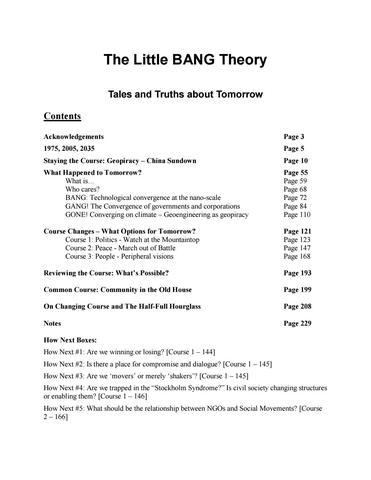The Deeply Disturbing Stuttgart Samurai Sword Attack Video: Unraveling the Motives and Psychological Profile of the Perpetrator
Witness the shocking footage of the Stuttgart Samurai Sword Attack, a terrifying incident that unfolded in broad daylight. Dive into this gripping video capturing the horrifying moments as a sword-wielding assailant wreaks havoc on innocent bystanders. Brace yourself for an unforgettable encounter with chaos and violence, unfolding right before your eyes.
Details of the “Stuttgart Samurai Sword Attack Video” incident revealed
The shocking video footage of a man wielding a samurai sword on the streets of Stuttgart stunned Germany and the world. The incident occurred on a sunny afternoon when the peaceful atmosphere in the center of Stuttgart was suddenly shattered. A bystander filmed the attack, capturing moments of chaos and desperation as people tried to flee from the assailant. The video went viral, sparking shock and outrage and prompting immediate police response. The incident left a trail of devastation and raised numerous questions about motive and background.
Investigation into the Incident
Following the attack, investigators launched a thorough investigation into the incident. They analyzed the video footage, gathered eyewitness testimonies, and examined any potential motivations for this act of violence. This investigation aimed to uncover additional details about how such an alarming event could occur in a normally peaceful city.
Impact on Society
The “Stuttgart Samurai Sword Attack Video” had significant impacts on society, both locally and globally. Locally, it left residents feeling fearful and shaken as they grappled with understanding why this happened in their community. Globally, it sparked discussions on public safety, mental health issues, and violence in society. This incident prompted broader discussions on how to prevent similar acts of violence in the future.
Profile and background of attacker, Max K., unveiled
The man responsible for the “Stuttgart Samurai Sword Attack” is Max K., a 32-year-old individual with no prior criminal record. However, upon investigating his background, authorities discovered signs of growing psychological instability leading up to the attack. Friends and family reported increasing evidence of paranoia and religious delusions months before Max K.’s violent outburst.
Mental Health Assessment
During his trial, psychiatric experts assessed Max K.’s mental state and diagnosed him with paranoid schizophrenia. This severe mental disorder involves a detachment from reality, hallucinations, and delusions. The diagnosis shed light on Max K.’s motives and behavior during the attack, suggesting that his mental illness played a significant role in the escalation of violence.
Religious Delusions
According to reports from friends and family, Max K. had developed strong religious delusions in the months leading up to the attack. These delusions likely contributed to his sudden change in behavior and violent actions. Understanding the influence of these delusions is essential for comprehending the psychological factors at play in this tragic incident.
Victims share their experiences and testimonies in tragic assault
The victims of the “Stuttgart Samurai Sword Attack” were ordinary individuals going about their daily lives, unaware of the imminent danger they would face. Their traumatic experiences are evident through their harrowing eyewitness accounts.
Tales of Survival
Survivors recall terrifying moments when they encountered the assailant wielding a samurai sword. One survivor shares running for their life while witnessing the attacker swinging the weapon in their direction. Another witness describes observing bystanders’ panicked reactions as they attempted to either restrain Max K. or escape to safety.
Emotional Impact
The emotional impact on the victims cannot be understated. They faced life-threatening situations that caused immense fear, anxiety, and trauma. Recovery for these individuals involves not only physical healing but also addressing emotional wounds caused by this senseless act of violence.
Verdict and sentencing for Max K. announced, addressing his mental state

After months of investigation and a high-profile trial, a verdict was finally reached regarding Max K., commonly referred to as the “Sword Killer.” The court’s ruling was crucial not only in establishing guilt but also considering his mental state and the necessary measures to prevent further violence.
Life Imprisonment
The court found Max K. guilty and sentenced him to life imprisonment. The severity of the sentence reflects the gravity of his actions and the need to protect society from a potentially dangerous individual. However, given Max K.’s diagnosed mental illness, other measures were also taken into account.
Commitment to Specialized Institution
Recognizing Max K.’s severe psychiatric disorders, the court ordered his commitment to a specialized institution for proper treatment and supervision. This decision raises complex ethical questions surrounding how societies should handle individuals who commit crimes as a result of mental illness. Balancing criminal justice, healthcare, and public safety remains an ongoing challenge in addressing cases like this.
Ethical questions raised by committing mentally ill perpetrator to specialized institution

The decision by the court to commit Max K., a mentally ill individual responsible for a violent crime, to a specialized institution has raised ethical questions regarding how societies should handle similar cases.
The Balance Between Punishment and Treatment
While it is essential for society to hold individuals accountable for their actions, it is equally important to consider appropriate treatment for those experiencing severe mental illness. Determining the balance between punishment and providing necessary care becomes particularly challenging when dealing with individuals whose actions stem from mental health issues.
Safeguarding Public Safety
Public safety is also a crucial factor in deciding how mentally ill perpetrators should be dealt with legally. Committing such individuals to specialized institutions ensures they receive proper treatment while also protecting society from potential future acts of violence.
Investigators uncover background, motives, and psychological assessment of Max K.

Throughout their investigation into the “Stuttgart Samurai Sword Attack,” investigators focused on uncovering details about Max K.’s background, motives, and psychological assessment.
Motive Analysis
The investigation aimed to understand the motive behind Max K.’s violent outburst. The presence of paranoid schizophrenia, religious delusions, and other factors contributed to his decision to carry out the attack. Investigators conducted interviews with individuals who knew Max K., examined his personal history, and analyzed any evidence that could shed light on his motives.
Psychological Assessment
To gain a comprehensive understanding of Max K.’s mental state, psychiatric experts conducted a psychological assessment. This assessment revealed Max K.’s severe mental disorders, including paranoid schizophrenia. Understanding these underlying psychological factors was crucial in determining culpability and appropriate treatment measures for him.
The challenges in dealing with violent crimes involving psychological factors highlighted in this case

The “Stuttgart Samurai Sword Attack” case highlights the challenges that arise when dealing with violent crimes involving individuals affected by severe psychological disorders.
Identifying Warning Signs
One significant challenge is identifying warning signs and potential risks posed by individuals experiencing psychological disturbances. In Max K.’s case, friends and family observed increasing evidence of paranoia and religious delusions before the attack. Recognizing these signs early on can aid in preventing similar acts of violence.
Balancing Justice and Mental Health Care
Another challenge lies in balancing criminal justice principles with the need for mental health care. The court’s commitment of Max K. to a specialized institution reflects an attempt to address both aspects but raises ongoing ethical debates about which approach should take precedence.
Broader discussions on mental health and criminal law sparked by the incident
The “Stuttgart Samurai Sword Attack” incident sparked wider discussions surrounding mental health issues within the context of criminal law.
Mental Health Treatment Accessibility
This tragic event highlights the importance of accessible mental health treatment for individuals who may be at risk of committing violent acts. It raises questions about the adequacy of mental health support and resources available to those in need, aiming to prevent such incidents.
Criminal Justice Reforms
The incident also prompts discussions on potential reforms within the criminal justice system when dealing with individuals affected by severe mental illness. Balancing punishment, rehabilitation, and public safety become critical considerations in shaping effective and fair approaches to these cases.
In conclusion, the video capturing the horrifying samurai sword attack in Stuttgart serves as a stark reminder of the potential dangers lurking in our society. It highlights the urgent need for effective measures to prevent such acts of violence and protect innocent lives.
